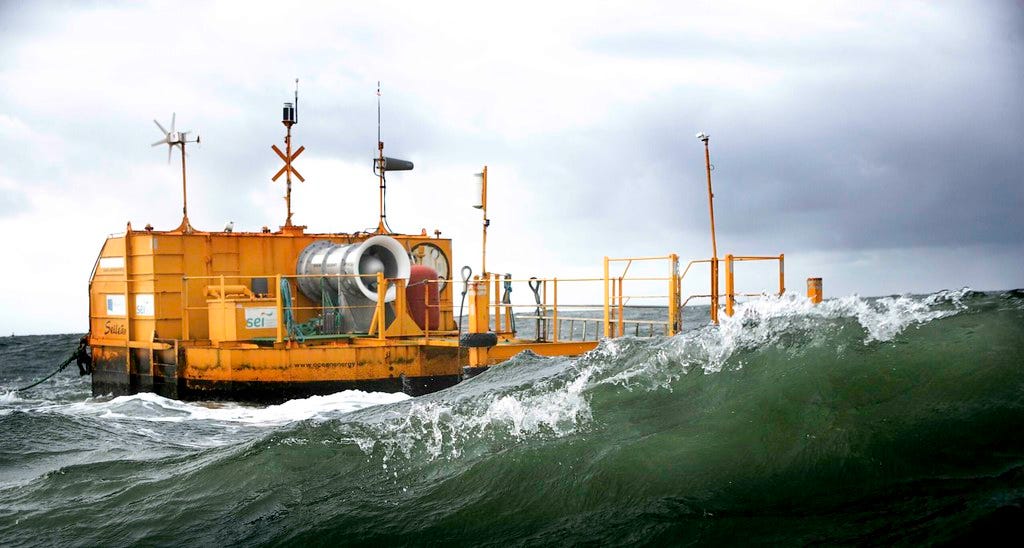What a New Mayor May Mean for Chicago's Climate Action Agenda
A review of Mayor Johnson's stated plans regarding what he intends to do to help Chicago end the fossil fuel era and create a just energy transition. 6/6/2023
350 Chicago News
End the Fossil Fuel Era Action
Reminder that 350 Chicago together with People vs. Fossil fuels is holding a climate protest action on June 9th, at 11:00am. at the Kluczynski Federal Building at 230 S. Dearborn Avenue to demand an end to the fossil fuel era, march to Chase Tower to tell Chase Bank to stop financing fossil fuel infrastructure, and march to the Aon Center to say NO to the proposed Peoples Gas rate hike!
We will have a New Orleans style funeral procession with a 4-piece jazz band to lead the way. We will have speakers demanding that President Biden shut down the Line 5 oil and gas pipeline currently running under the Straits of Mackinac, talk about the devastation on the South Shore from years of fossil fuel pollution and more to be announced. If you would like to participate in planning or in filling a role during the action, we have plenty of opportunities, especially for people to hold signs or be a pallbearer of our cardboard coffin. Please email: larrycoble350@gmail.com. RSVP to attend the action today!
Former Congressman Bob Inglis to Speak for 350 Chicago
This July, conservative Bob Inglis will speak for 350 Chicago on the need to urgently address the climate crisis. Inglis is a former GOP Congressman from South Carolina. A climate skeptic, like many in the Republican party, Inglis changed his mind after a visit to study ice core samples in the Arctic. He returned to Congress and tried to change the minds of his GOP colleagues to take action to avert climate disaster. Next election he was primaried and voters booted him from office for telling the uncomfortable truth. He willingly gave up power to save lives. Inglis is the 2015 recipient of the John F. Kennedy Profile in Courage Award. Hope to see you at the event! Visit the Congressman’s website for more info on his work.
In Brief
No Danger of Running Out of Materials Needed to Create Renewable Energy, Researchers Say
In a new study, researchers from MIT have determined that the world has plenty of nickel, cobalt, lithium, aluminum, etc. to power the renewable energy transition. In fact, “for every scenario the team examined, the materials needed to keep the world under 1.5 C account for ‘only a fraction’ of the world’s geologic reserves.” They also concluded that the energy required to mine those materials won’t produce enough GHG emissions to keep the world from reaching target reduction goals. Yet, as the research team acknowledges, mining these materials often comes with severe environmental degradation including wildlife ecosystem destruction and loss of fresh water sources for people nearby. In addition, the history of mining in the 20th century shows just how ready corporations in the name of greed are willing to exploit countries and their people as they make away with the natural resources and the money. A Renewable Energy Mining Treaty should be drawn up, with stiff penalties for any country or corporation who violate its provisions. You can read the study here.
Adam McKay’s Takes on Big Oil Disinformation
It is now a well-known fact that the reason much of the world did not act much sooner on climate change is due to the persistent and powerful misinformation campaign waged by fossil fuel companies over the last 50 years to delay any meaningful action. Film director Adam McKay, who wrote and directed the brilliant climate satire Don’t Look Up! has started a new venture to help combat climate disinformation. Through Yellow Dot Studios, McKay hopes to use articles, films, memes, etc to “help bring some actual reality to the collective story [of climate change].” Here is an example of a Yellow Dot Inflation Reduction Act PSA
:
Visit Yellow Dot Studios website to check out their content.
A New Kind of Hydroelectric Power Source
For a long time, scientists have wondered about how we might harness the awesome power of the oceans to create needed clean and renewable energy. The oceans cover 70% of the earth and so the prospects of tapping into this power is tantalizing. A new company named PacWave has a research team stationed 7 miles off the Oregon coast to test the concept of converting the energy of waves into electricity. According to Burke Hales, the chief scientist for PacWave, “Quantitatively, wave energy might be able to account for 10 percent to 20 percent of our global electricity demand.”

Other companies are testing out this new technology and PacWave hopes to produce electricity for the grid by 2025. Learn more!
CTA’s L Troubles Means GHG Emissions Increases
by Miki Graf
Following the pandemic, the Chicago Transit Authority (CTA) has seen a significant decrease in ridership on their trains. According to an article in Chicago Magazine, the number of people riding the L is half of what it was 3 years ago, due in part to frustration and concern with service unreliability, the neglected state of train cars and stations, and an increase in violent crime. Therefore, service has been degraded because of these issues and trouble finding drivers and there aren’t as many trains running as before.
This, of course creates worsening vehicle road traffic, and more carbon emissions. Although the worsening traffic congestion and pollution resulting from the decrease in L ridership affects all Chicagoans, it disproportionately impacts lower-income communities, who are more likely to rely on public transit, and Black and Brown Chicagoans, who already suffer from higher rates of health issues associated with air pollution.
In an effort to improve CTA service, the agency has increased wages for train operators and mechanics and added hiring bonuses to incentivize employees. According to recent data, the CTA has reached 715 of 839 budgeted full-time train operators. In another exciting step in the right direction, the U.S. Department of Transportation's Federal Transit Administration (FTA) announced that the CTA will receive a $200 million grant to replace old rail cars. With replacements and upgrades, Chicagoans can hope for faster, safer, and more comfortable CTA rides in the coming years. In order to fully address climate change and the degraded health of people due to fossil pollution, Chicago needs a better and expanded, fully electrified public transportation system.
Climate Change Priorities for the New Johnson Administration
by Joshua Horwitz
On May 15, 2023, Brandon Johnson was sworn in as Chicago’s new mayor and he and his administration have a slew of new priorities and promises on environmental issues.
As a climate change advocacy organization, 350 Chicago is dedicated to ensuring that the new administration is actively pursuing policies to address climate change. Here are some of the Johnson administration’s environmental priorities that most directly address climate change:
Re-Establishing the Department of Environment
As we reported in our previous newsletter, Mayor Emanuel disbanded the Department of Environment, which resulted in citations for air pollution falling by nearly 90%. Since dissolving the department, environmental enforcement has either been left to departments with other priorities such as the Department of Public Health or the much less well funded “Office of Sustainability.” (IEC: Why Chicago needs Department of Environment and why we need one now). The Johnson administration promises to “Resurrect and Improve” the Department of Environment, with a strong commissioner, policy area experts, better collaboration with the community and other city agencies, and more inspectors to examine corporate polluters.
Re-establishing the Department of the Environment is an essential priority to both protect air quality for the citizens of Chicago’s South and West Sides and to ensure that greenhouse gas emissions from Chicago industry are reduced.
Utility Rate Justice
When Peoples Gas requested a $402 million rate hike this January, public utility rates have been a fierce topic of debate as pushback from consumer advocacy groups and public protests against the hike have heated up. Johnson notes the impact of utility costs on customers, as “folks are struggling to pay utility bills.” However, his policies on Utility Justice are centered on the city’s relationship with ComEd and do not mention Peoples Gas. His policies mention a willingness to “explore municipalization of ComEd”, though in 2020 the Lightfoot administration released a report that it would cost the city $9 billion for Chicago to form its own electric utility.
CTA Electrification
The Johnson Administration lists electrifying the CTA and increasing ridership as a priority, but does not give specifics or a timeline. The CTA itself lists a timeline to electrify by 2040. In fact Chicago has been a leader in this space and was one of the first cities in the US to use electric buses, purchasing two in 2014.
However, a timeline to electrify the fleet by 2040 is much too slow. Climate change is already advancing at an unsustainable pace and Chicago should be on the cutting edge of electrification. Waiting 17 years to fully electrify our fleet fails to acknowledge the urgency of the issue and the long timeline makes this a low priority for a current administration. We encourage the Johnson administration to commit to electrification by 2030 and to take significant steps to significantly increase the pace of CTA electrification.
For more information, read “Paying for Electric Buses” by the US Public Interest Research Group and CTA’s 2022 Electric Planning Report.
Building Efficiency
The Johnson administration supports a green new deal for housing and notes that “existing buildings produce 69% of our city's emissions.” They promise to pass a Clean and Healthy Buildings Ordinance, which would “focus on standards for new developments and a just transition for existing buildings.” This will be done pursuant to the Illinois CEJA (Climate & Equitable Jobs Act), which provides the legal framework for increasing energy efficiency requirements for residential and commercial buildings.
As the NRDC has noted in their analysis on CEJA, energy efficiency is “key” to climate policy in general. And this is a significant environmental justice issue as well since poorer communities of color face the highest energy burdens and stand to benefit the most from higher home energy efficiencies and lower power bills.





